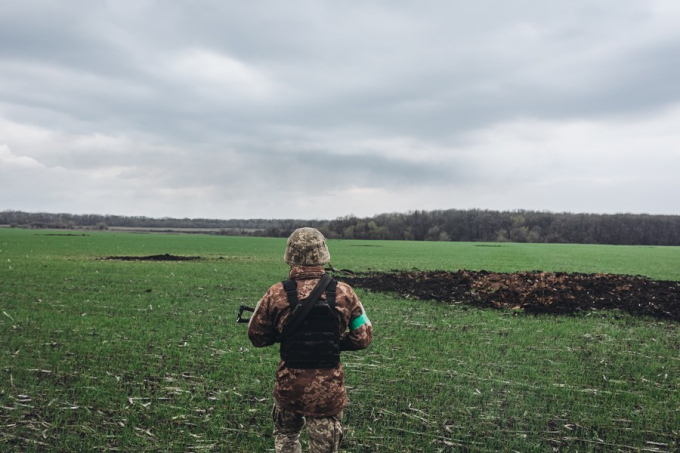June 20, 2025 | 08:14 GMT +7
June 20, 2025 | 08:14 GMT +7
Hotline: 0913.378.918
June 20, 2025 | 08:14 GMT +7
Hotline: 0913.378.918

A Ukrainian soldier walks in a field in Donbass on April 12, 2022. Photo: Xinhua
Maximo Torero told Xinhua in a recent online interview that this year, global access to food is hampered by the rocketing prices.
"In March, we had the biggest peak in the FAO's food price index," he said, adding that although the monthly index declined slightly in April and May, cereal prices continue to increase.
The main reason behind the price increase, Torero said, is that Russia and Ukraine are key exporters of cereals, including maize and wheat. The FAO said that the two countries produced around 30 percent of the global wheat supply in 2021.
As a result of the surge in prices, "consumers and especially vulnerable countries are facing significant challenges to be able to procure the amount of food that they need today," he said.
Access to fertilizers is another major concern, and this is especially true for the 2022-2023 season, Torero said.
Russia is the world's top exporter of nitrogenous fertilizers, the second leading supplier of potassium fertilizers, and the third of phosphorous fertilizers. Now "fertilizers are not flowing at the velocity they are supposed to flow," he said.
"We are really concerned that in 2023, if this is not resolved, we could have a problem with food availability and access," he noted.
The Russia-Ukraine conflict that started in late February "made it uncertain whether Ukraine will be able to harvest its winter crops and plant the spring crops," he said.
The FAO's recently released outlook for winter cereal crops in Ukraine is also bleak. Yields are expected to fall 10 percent below average levels due to the delayed or missed fertilizer application and the country's inability to control pests and diseases.
Torero noted that Ukraine also faces a challenge in storage capacity as its ability to export via the Black Sea ports is completely stymied. In the past, the country exported over 90 percent of its agricultural commodities.
He recalled that several million tonnes of grain from the 2021 harvest remain stuck in Ukraine. "If farmers are not able to sell their crops, they will lack the financial resources needed to start the next growing season, and this will seriously affect the 2023 harvest," he said.
"For now, it remains crucial to facilitate exports from Ukraine to free up the country's storage capacity and help farmers and their families earn income. This will also help increase the availability of wheat globally, and reduce the pressure on prices," he said.
The FAO has tabled a series of policy proposals to cushion the impact of the conflict on global food security, Torero said.
The first one is a global Food Import Financing Facility (FIFF), which would help countries avoid food shortages caused by the increase in their food import bills.
The second proposed tool is the Food Insecurity Experience Scale (FIES), which is designed to measure the individual food insecurity of households in countries that are facing significant challenges.
The other proposals aim to increase the efficiency of the use of fertilizers and reduce food loss and waste.
In the medium and long run, Torero said the emphasis should be on "how we can ensure that the most vulnerable countries can increase their resilience."
(Chinadaily)

(VAN) Poultry production in Poland, which has only started recovering from devastating bird flu outbreaks earlier this year, has been hit by a series of outbreaks of Newcastle disease, with the veterinary situation deteriorating rapidly.

(VAN) Extensive licensing requirements raise concerns about intellectual property theft.

(VAN) As of Friday, a salmonella outbreak linked to a California egg producer had sickened at least 79 people. Of the infected people, 21 hospitalizations were reported, U.S. health officials said.

(VAN) With the war ongoing, many Ukrainian farmers and rural farming families face limited access to their land due to mines and lack the financial resources to purchase needed agricultural inputs.

(VAN) Vikas Rambal has quietly built a $5 billion business empire in manufacturing, property and solar, and catapulted onto the Rich List.

(VAN) Available cropland now at less than five percent, according to latest geospatial assessment from FAO and UNOSAT.

(VAN) Alt Carbon has raised $12 million in a seed round as it plans to scale its carbon dioxide removal work in the South Asian nation.